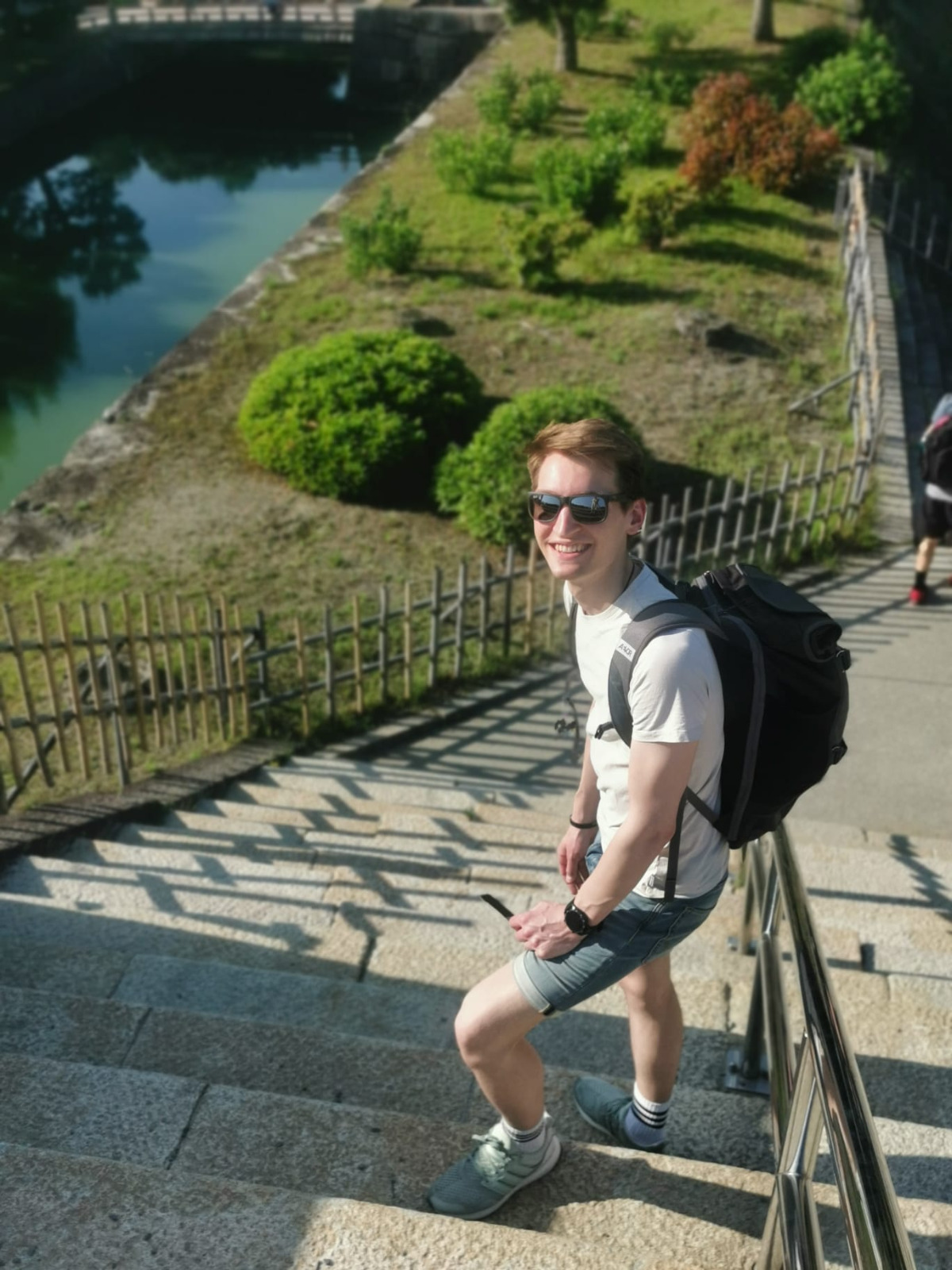First secondment at Astrobiology Center
Written on August 23rd , 2023 by Jan-Vincent Harre
Jan-Vincent Harre is a PhD student at DLR, studying the tidal evolution of exoplanets. He recently carried out an exchange with our partner at the Astrobiology Center in Tokyo, Japan. Let’s hear about his experience! (All photo credits on this page belong to Jan-Vincent Harre)
What did I do there?
I visited Japan, or more precisely, the Astrobiology Center at the NAOJ (National Astronomical Observatory of Japan) Mitaka campus in Tokyo thanks to the EU-funded EXOWORLD project. My stay started at the beginning of April and ended with the first week of May. My main goals were to learn about radial velocity measurements and the Rossiter-McLaughlin (RM) effect, and applying the gained knowledge to our data set of RM observations in order to constrain the orbital obliquities in those systems. Orbital obliquity refers to the angle between the stellar rotation axis and the orbital axis of the planet. Thanks to great explanations and training by my supervisor at the NAOJ, Dr. Teruyuki Hirano, we obtained new results from our data set. Besides my work at the NAOJ in Tokyo, I also participated in the Protostars & Planets 7 conference in Kyoto. The main topics of this conference were star and planet formation, which provided me with some takeaways for my own work.
How did the international collaberation work out?
The international cooperation went really well with no hiccups along the way. Everyone was super friendly and helpful at the institute, and I was able to exchange some ideas with a few people for our own respective work. Besides, it was a great pleasure to meet so many fellow scientists and students, and to also talk about non work-related topics during several dinners.
How was the culture?
The culture in Japan is quite different from ours here. Still, for me it was not hard to adapt to the written and unwritten rules that exist. Nobody wants to create an inconvenience for anybody if possible, and queues are greatly complied with. The completely stuffed subways that one might encounter during rush hour, where every square centimeter of space will be fully taken advantage of, are an experience for their own, though. I also had the feeling that it is true that for a lot of people, work plays a very important rule in their life. Another thing that I was really mesmerized about was how clean it is everywhere. Even though public trash cans are very rare, it is quite hard to find litter on the streets or in the train and subway stations. This mentality is really something that I would like for some people here in Germany to have.
What did I find especially nice?
Besides meeting all the friendly people of the institute and talking to and working with them, and having a great overall collaboration and stay, I really enjoyed the diversity in Tokyo. Not only the people, but also the districts in Tokyo and their sightseeing spots are quite diverse. Going from very tourist-oriented areas, like the Tokyo Skytree, over the beautiful looking Meguro River during cherry blossom, the various religious sites, like the huge Asakusa shrine, to the Shinjuku district, where you can find nightlife (and Godzilla!), feels very different, just to name a few. In addition to all that, I also really enjoyed the food and also the different styles of food available. For example, it is really hard to find the same kind of Ramen from one restaurant in another restaurant, everyone will put their own twist to it and make it unique.
Why was this a valuable experience?
This was a really precious experience for me not only because of the new skills that I have gained for my work, but also because of all the people that I have met and talked to, sharing their culture and mentality with me, which makes me see some things in a new light. I am thankful to the people of the NAOJ whom I was able to meet and to everyone involved!


